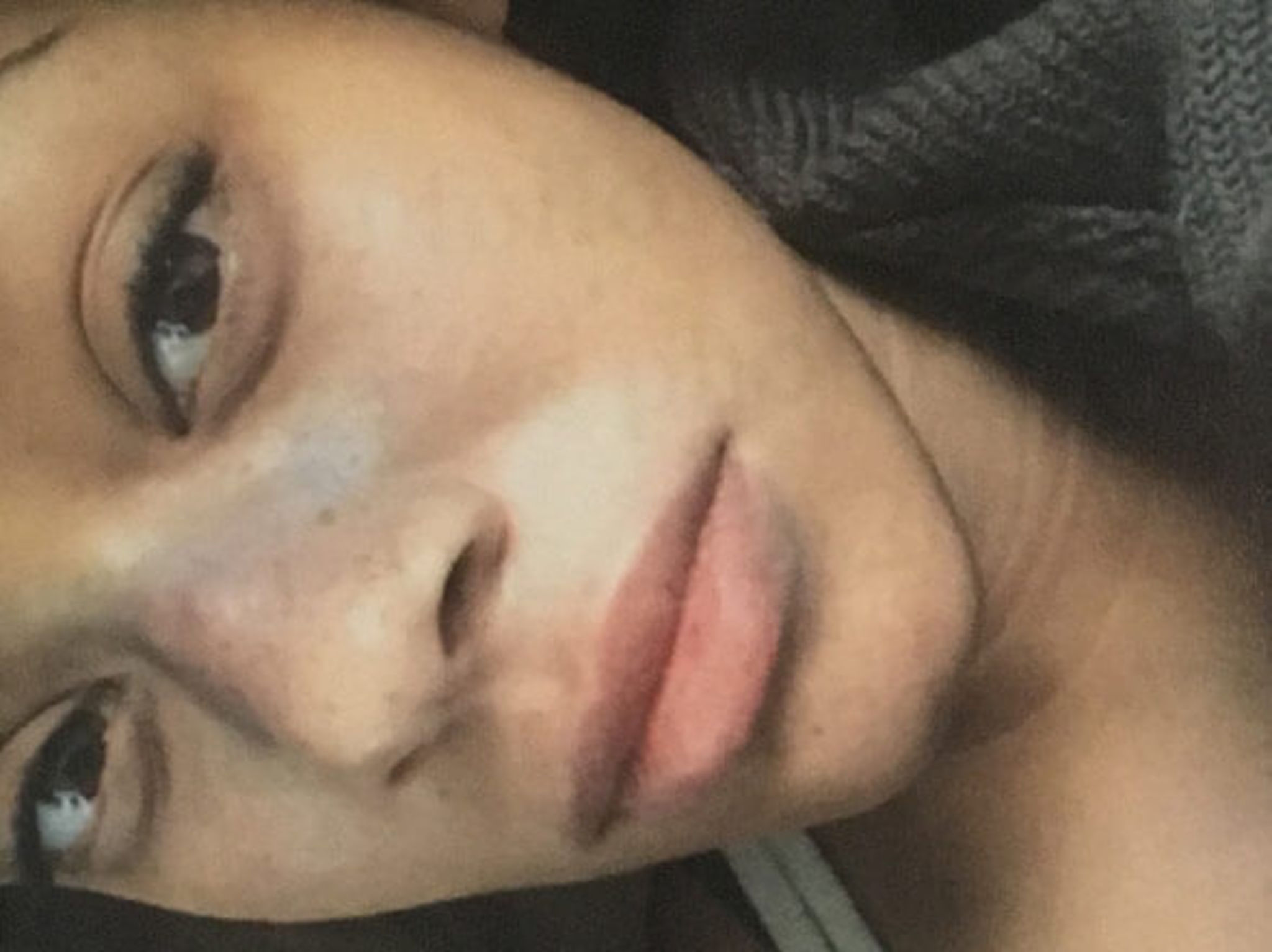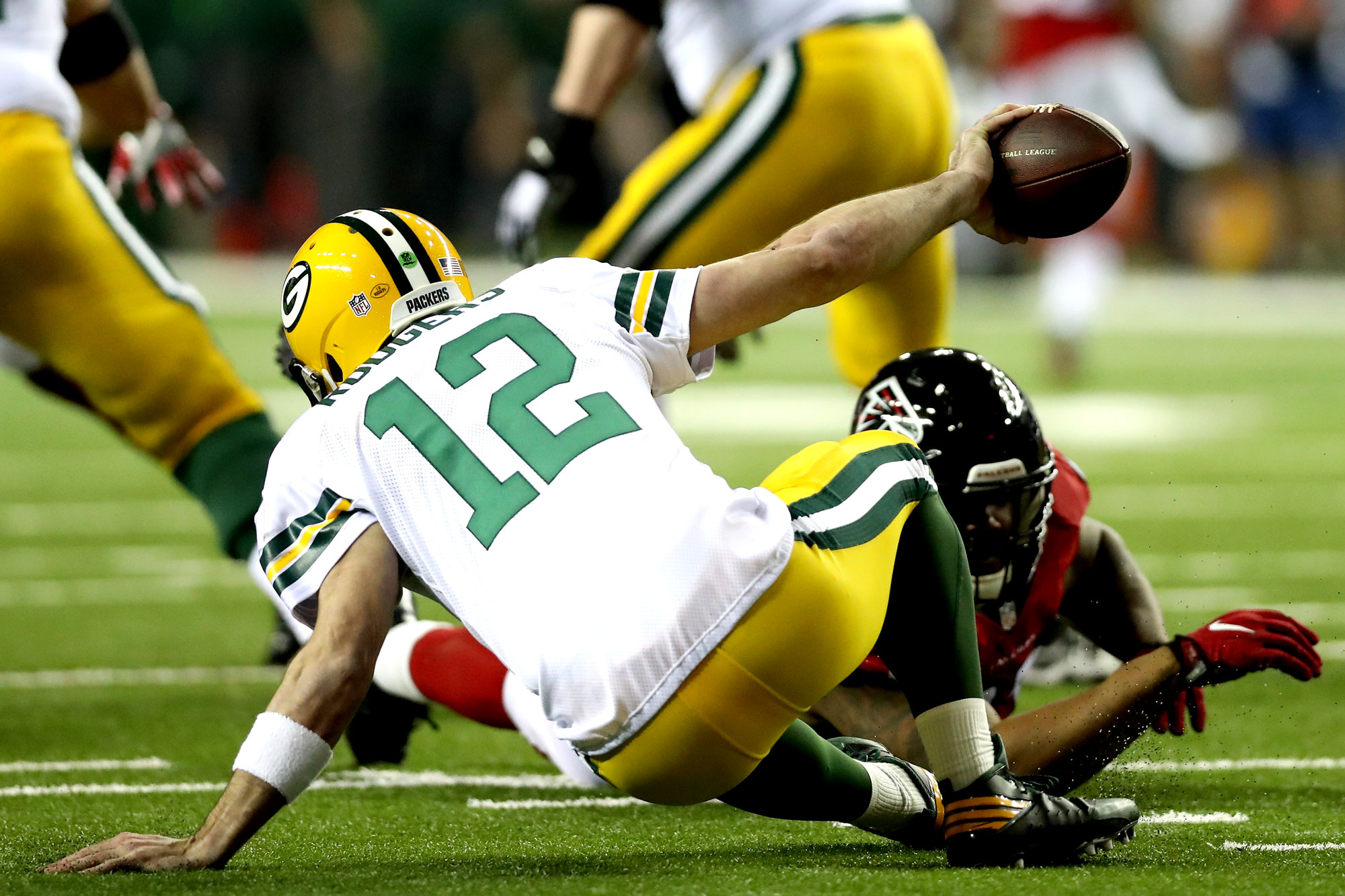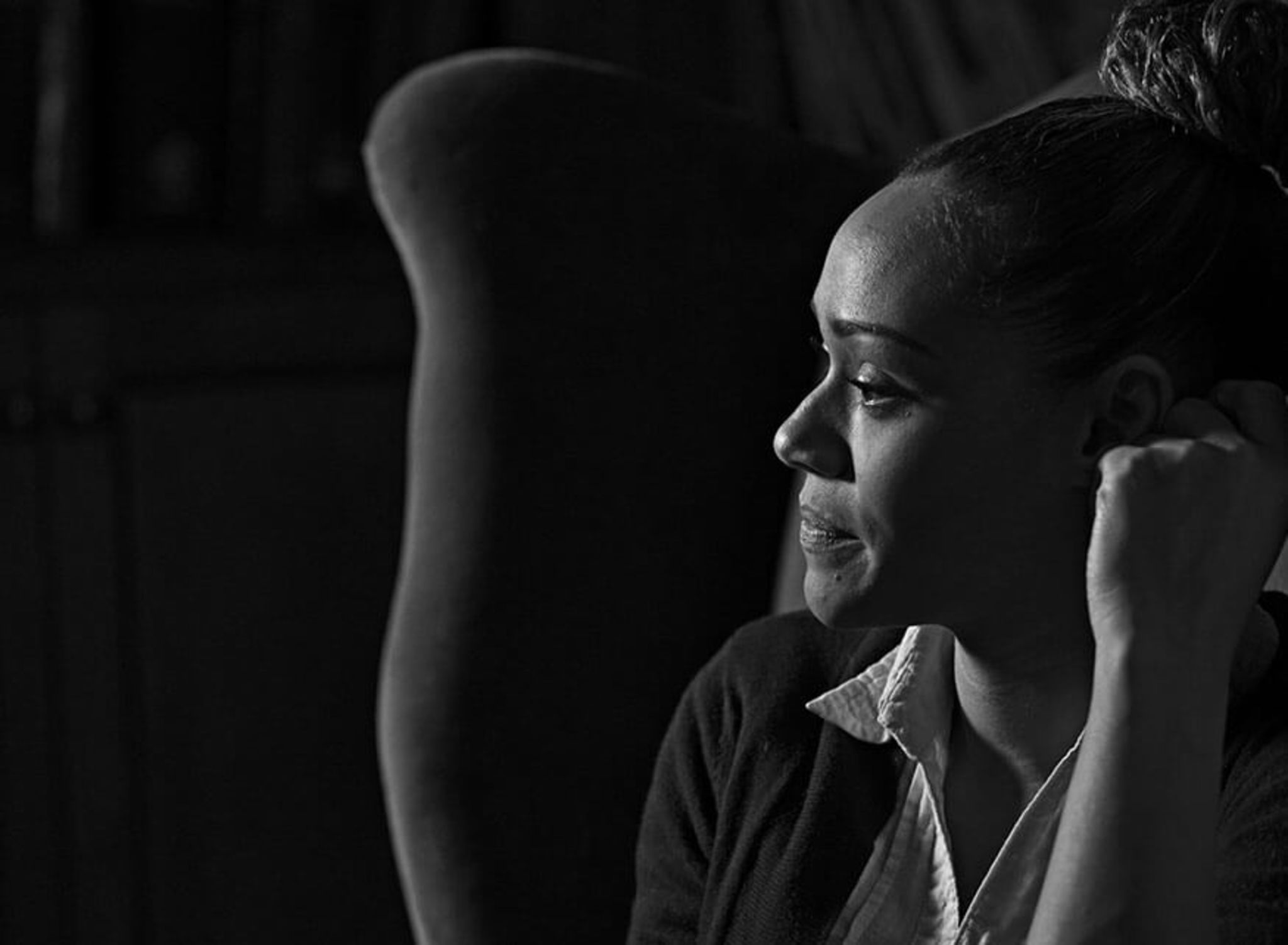Prosecutors said they did not find sufficient evidence to charge McDonald for domestic violence, citing Scott’s “significant lack of cooperation.”
During an incident in July 2014, Scott says McDonald confronted her in her car when she was trying to leave their home: “Eventually, he just grabbed me and body-slammed me on the ground and kicked me in my back and my stomach and my head. He picked me up, punched me in my face, dragged me through the streets basically.”
Feeling ashamed and with bruises, Scott says she stayed in the guest room of their home for three days and avoided contact with anyone who would ask questions about her visible wounds.
Then, on August 31, 2014, police were called regarding a conflict between Scott and McDonald. She had gone to bed early at a party he’d been hosting at their house when, according to the police report, a woman in attendance woke her up and told her another woman was being flirtatious with McDonald. Scott went downstairs and, police wrote, “McDonald stated that his girlfriend confronted a random female that had no idea what was going on.”
McDonald told police “she had ‘punched’ him several times. He admitted grabbing her by the arms in order to avoid getting hit”—which, police noted in their report, left Scott with “visible minor injuries to the neck and both arms.”
“I was really scared,” Scott says. “I was pregnant. I was worried about the baby. I was worried about everything.”
McDonald was arrested. By morning, his mugshot was on the local news.
“
I think domestic violence is hard by itself, but to have it so public and for the world to see and have an opinion on what little is out there is really hard.
”
KENDRA SCOTT
Acknowledging expectations that “were created by the Ray Rice domestic violence case,” Santa Clara County prosecutors declined to charge McDonald on November 10. They cited “mutual fighting between two parties, each party blaming the other” as well as that they had “no verifiable eyewitnesses, no one with significant injuries, and no allegation of prior domestic violence by McDonald”—and the only documented prior incident between the two of them was Scott “possibly firing a gun” earlier in their relationship.
Her “decision not to cooperate further with the investigation,” prosecutors wrote in their conclusion, “left critical gaps in the evidence.”
Within hours, the 49ers released a statement about their defensive end: “Based on the information available to us and the District Attorney’s decision not to file charges, there will be no change in Ray’s status with the team.” The NFL’s special counsel for investigations eventually said that after finishing its investigation of the incident, the league “didn’t find sufficient evidence to say that he violated the personal-conduct policy.”
A month later, on December 17, 2014, police said they were investigating McDonald for a rape accusation by a different woman. The 49ers released him the same day, but the Bears signed him to a one-year contract three months later.
“The choice to terminate Ray is not a reflection of any judgment about this particular matter,” 49ers CEO Jed York said in a statement at the time, “but reflects my belief that our team must be made up of individuals who are accountable for their decisions and the consequences of those decisions.”
On May 25, 2015, police were called regarding an argument Scott was having with McDonald. He was taken into police custody on suspicion of domestic violence and child endangerment for allegedly causing Scott physical harm when she was holding their infant son. As a matter of practice, police issued a protective order that prohibited McDonald from coming in contact with Scott.
McDonald was arrested again two days later for allegedly violating the order. Rosenblum, the attorney now representing McDonald against the pending charge, said his client “was given advice by his lawyer that he could make that visit” and says that McDonald never struck Scott. The Bears released him within hours because “he was not able to meet the standard” of “second chances.” (The Bears declined to comment.) He has not played pro football since.
McDonald was indicted in August 2015 on one count of rape of an intoxicated person. Rosenblum said his client is not guilty. He added that it was his understanding that the woman in that case “made it abundantly clear that she no longer wishes to go forward.”
“The facts of that case in my view not only support the very difficult task the state would have in obtaining a guilty verdict, but the facts support to the contrary that Mr. McDonald was not remotely guilty of what he was charged with,” Rosenblum said. (A lawyer who represented the woman who accused him declined to comment.)
“Once an allegation like that is made,” Rosenblum said of the rape allegation, “it’s difficult to unring the bell and unring the consequences that it has on the person who is accused, in this case Ray McDonald.”
Before the indictment, the NFL’s special counsel for investigations told a gathering of reporters that the league investigation into the rape allegation was “ongoing.” Rosenblum said McDonald has never been suspended by the NFL.
Of Scott speaking out, the lawyer told B/R Mag: “Mr. McDonald and this individual had basically reconciled and were continuing in an intimate relationship and these allegations did not start becoming this vitriolic and public until Mr. McDonald ended the relationship a few months ago.”
He said it is McDonald’s intention to play football again.
The NFL did not respond to any questions for this article, about McDonald, or about whether its domestic violence policy had been overhauled based on learnings from investigating allegations against him and at least 17 other players it has employed. A league official forwarded a 2016 update of the Personal Conduct Policy without further explanation, and declined to comment Monday night at a Super Bowl event in Houston.
For her part, in Northern California, Kendra Scott says she has been working and going to therapy. In addition to raising her son, she might go back to school.
“They don’t want the negative publicity,” Scott says of the NFL. “They don’t want the attention. They don’t want to be associated with that. But it is such a real issue. It happens all the time.” ◼
















